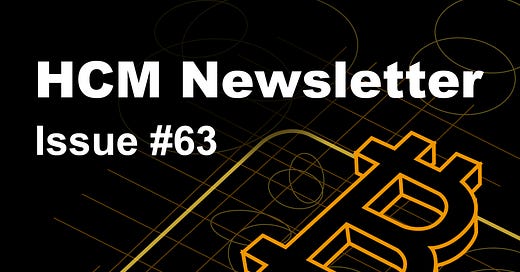The recent surge in the Chinese stock market follows a series of government announcements outlining new economic support measures and initiatives designed to boost institutional investment in equities. These interventions have sparked a sharp recovery, with the CSI 300 index, which tracks the largest stocks listed on the Shanghai and Shenzhen exchanges, soaring by nearly 16%—marking its best weekly performance since 2008. The rally has helped the market recover from the near year-lows it had been hovering around prior to the news.
Thursday, President Xi chaired a high-level meeting, underscoring the government’s commitment to halting the ongoing decline in the real estate market, which has been a major drag on the broader economy. The meeting also focused on bolstering fiscal and monetary policy to stimulate economic activity. In tandem with these efforts, the People’s Bank of China (PBOC) implemented key measures, including a reduction in interest rates and a cut in the payment obligations for existing mortgage holders, aimed at relieving financial pressures on households and spurring consumer spending.
Commenting on the recent developments, Zhu Ning, author of China’s Guaranteed Bubble, noted that “the policy response is much stronger and more coordinated than it was in 2015, but the economy now faces greater headwinds than it did back then.”
While the strong market rally is encouraging, it remains uncertain whether this momentum will translate into a lasting recovery. A true, long-term economic rebound will require a significant improvement in corporate earnings, which are still under pressure. Without sustained growth in the corporate sector, these market gains could prove to be short-lived. Moderate, stable growth remains essential for ensuring China’s long-term economic resilience and stability.
Reference: Google Finance, Fidelity
Balaji Srinivasan's concept of the Network State represents a bold rethinking of how societies can be organized in the digital age. The idea, which he outlines is that digital communities can eventually become sovereign states, bypassing traditional territorial-based governance structures. His proposal, while visionary, raises significant questions about governance, identity, and the future of nations in a decentralized world.
Core Concept of the Network State
At the heart of Srinivasan’s theory is the belief that with the rise of digital networks, people can form communities around shared values, goals, or interests—completely independent of geographic boundaries. These digital communities, or "network unions," would initially be social and economic in nature, built through online platforms. As they grow in size and influence, they could develop their own governance structures, economies, and even physical land, eventually claiming statehood.
Balaji argues that the traditional nation-state model is increasingly outdated, given that it is tied to fixed territories and centralized power structures. The network state would break away from this model by being fluid, borderless, and decentralized, leveraging technologies like blockchain, cryptocurrency, and decentralized autonomous organizations to facilitate governance and economic interactions.
Key Features of a Network State
Digital-first Governance: Instead of a centralized government, a network state would rely on digital governance systems. Blockchain technology could be used for transparent voting, smart contracts, and decentralized decision-making, ensuring accountability and participation from members.
Shared Vision: A network state is not defined by territory but by a shared mission or value system. This collective vision is the glue that binds members together, whether it's environmentalism, technological innovation, or certain social values. The strength of this shared vision replaces the need for traditional national identity or culture based on geography.
Crowdsourced Funding: Traditional states rely on taxes to fund public services, but a network state could leverage crowdfunding, decentralized finance, and cryptocurrency to raise funds for projects, infrastructure, or land purchases. Members can directly contribute to initiatives they care about, creating a more engaged and financially invested citizenry.
Geopolitical Recognition: One of the boldest claims in Srinivasan’s vision is that these digital nations could, over time, acquire physical land or “embassies” and seek recognition from traditional states. Diplomatic recognition would validate their sovereignty, enabling network states to exist both digitally and physically.
Digital Asset-enabled Economies: The economic foundation of a network state would be heavily reliant on cryptocurrencies and decentralized finance systems. These economies could operate without intermediaries like banks or traditional fiat currencies, making them more adaptable and efficient, especially in the global digital marketplace.
Reference: The Network State
Bitcoin Remains The Top-Performing Asset in 2024
Bitcoin remains the top-performing asset in 2024, despite a modest 2.5% gain in Q3, according to NYDIG. Bitcoin has seen a year-to-date rise of 49.2%, although large sales and distributions, including $13.5 billion from Mt. Gox and Genesis creditors, have weighed on its price. Bitcoin’s performance has outpaced other assets, although the gap has narrowed.
Bitcoin's 10% rise in September defied typical trends, driven by demand from spot ETFs and increased corporate adoption by companies like MicroStrategy. The U.S. election to impact Q4, with potentially larger gains if Trump wins. Despite headwinds, Q4 is historically bullish for Bitcoin, Bitcoin's current performance mirrors its past cycles at this stage.
Reference: NYDIG, Bloomberg Cointelegraph,
IMF Urges El Salvador to Scale Back Bitcoin Policies, Advocates for Stronger Regulation and CBDCs
During an Oct. 3 press conference, the International Monetary Fund (IMF) once again urged El Salvador to scale back its Bitcoin policies and overhaul its regulatory framework for the digital asset. Julie Kozack, director of the IMF’s communications department, emphasized the need to limit the public sector’s exposure to Bitcoin while recommending a narrower scope for El Salvador's Bitcoin Law and stronger oversight of the cryptocurrency ecosystem.
Since El Salvador made Bitcoin legal tender in 2021, the IMF has repeatedly pressured the country to shift back toward traditional financial systems. In its August 2024 report, the IMF reiterated these concerns but admitted that many of the anticipated risks associated with Bitcoin adoption had not yet materialized.
The IMF’s broader stance on Bitcoin reflects its ongoing concerns about the volatility and risks posed by non-state-controlled Bitcoin. While countries like El Salvador have embraced Bitcoin as an alternative to traditional fiat currencies, the IMF continues to warn against these digital assets, advocating instead for tighter regulation and oversight. At the same time, the IMF is actively pushing for the adoption of central bank digital currencies (CBDCs) as a more stable alternative.
Reference: Cointelegraph
PayPal Expands Bitcoin Services to U.S. Businesses
PayPal Holdings, Inc. (NASDAQ: PYPL) has rolled out new cryptocurrency services for its U.S. business account holders, allowing them to buy, hold, and sell cryptocurrencies like Bitcoin directly from their PayPal accounts. While this service is available nationwide, it will not be accessible in New York State at launch due to regulatory constraints.
In addition to buying and selling, U.S. merchants can now transfer bitcoin to external wallets, giving businesses more flexibility in managing their digital assets and enabling them to interact more easily with the broader ecosystem.
This move reflects PayPal's continued expansion into the digital currency space. Since launching consumer crypto services in 2020, PayPal has broadened its offerings. These efforts signal PayPal’s commitment to providing comprehensive digital currency solutions for both consumers and businesses.
Reference: Bitcoin Magazine
We’re Excited to Contribute to The Nostr Booth Initiative!
We look forward to seeing more projects and contributors join in to help grow the Nostr community!
The Nostr Booth Initiative is a community-driven project aimed at supporting and growing the Nostr network by promoting it at various events. It seeks to build awareness of Nostr by setting up booths and hosting workshops during Bitcoin conferences. The initiative relies on crowdfunding, particularly through Bitcoin donations, to support its efforts and spread information about Nostr's potential in decentralization, privacy, and secure communication.
We look forward to seeing more projects and contributors join in to help grow the Nostr community!
Check out the link for more information: Geyser.fund
LifPay v2.2.0 is Here
Some of the new features:
-Streamlined UI/UX – Pay lightning fast with our improved interface that’s designed for simplicity and speed.
-Avatar Display – Now see the avatar of the Lightning Address when making a payment for that personal touch.
-Mainnet Support – You can now receive Bitcoin directly from the mainnet into your LifPay account
-Web Payment Enhancements – We've improved the experience when clicking on payment links from the web.
-Unified QR Code Scanning – Scan and pay with ease using the new unified QR code support.
Check out the LifPay Webiste for more information: LifPay.me















